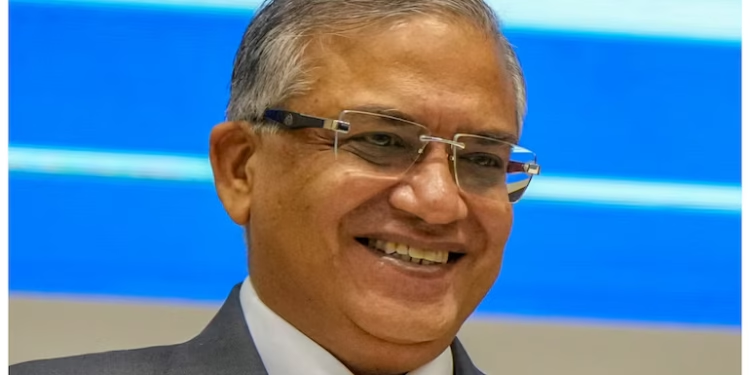Gyanesh Kumar, a seasoned bureaucrat with decades of administrative experience, has been appointed as India’s 26th Chief Election Commissioner (CEC). His tenure comes at a crucial time as the country gears up for the upcoming general elections. Kumar succeeds Rajiv Kumar, who held the position before him, and brings a wealth of experience in governance and electoral affairs.
A Seasoned Bureaucrat with Vast Experience
Gyanesh Kumar is a 1988-batch Indian Administrative Service (IAS) officer from the Kerala cadre. Over his career spanning more than three decades, he has held key positions across various government departments. He has extensive experience in public administration, policy-making, and election management, making him well-equipped to oversee the world’s largest democratic process.
Prior to his appointment as the CEC, Kumar served in the Ministry of Home Affairs and the Ministry of Parliamentary Affairs. He was actively involved in crucial administrative reforms and played a pivotal role in managing internal security and governance initiatives.

Role in Election Commission of India
As the Chief Election Commissioner, Gyanesh Kumar will be responsible for ensuring free, fair, and transparent elections across the country. The Election Commission of India (ECI) plays a critical role in upholding the democratic framework, and Kumar’s leadership will be instrumental in tackling challenges such as electoral malpractices, misinformation, and the efficient execution of the election process.
His appointment comes at a time when India is preparing for the upcoming Lok Sabha elections, making his role even more significant. He will be tasked with implementing reforms, addressing voter concerns, and ensuring the integrity of the electoral system.
Key Challenges Ahead
As the new CEC, Gyanesh Kumar faces several challenges, including:
- Conducting the 2024 General Elections: With the Lok Sabha elections around the corner, ensuring smooth and unbiased polling will be his top priority.
- Addressing Misinformation and Fake News: Social media and digital platforms have increasingly influenced public opinion. Kumar will need to implement measures to curb misinformation and ensure voter awareness.
- Enhancing Voter Turnout: Encouraging voter participation, particularly among urban and young voters, remains a challenge that Kumar will have to address.
- Electoral Reforms: Strengthening the electoral process through technology-driven solutions and legal reforms will be another major focus area.

India’s Electoral System and the Role of the CEC
The Election Commission of India is an autonomous body responsible for conducting elections at the national and state levels. The CEC is the head of this institution and is appointed by the President of India. The role requires a deep understanding of the legal, political, and administrative framework of the country.
Gyanesh Kumar’s appointment as the 26th CEC underscores the government’s confidence in his ability to steer India’s elections with integrity and efficiency. His vast experience in governance and electoral affairs positions him as a strong leader to uphold the democratic principles of the nation.
With a crucial election season ahead, Gyanesh Kumar’s leadership as India’s Chief Election Commissioner will be closely watched. His expertise in governance, coupled with his commitment to ensuring free and fair elections, will play a significant role in shaping the country’s democratic process. As he steps into this pivotal role, the nation awaits his approach to handling electoral challenges and reinforcing India’s reputation as the largest democracy in the world.











